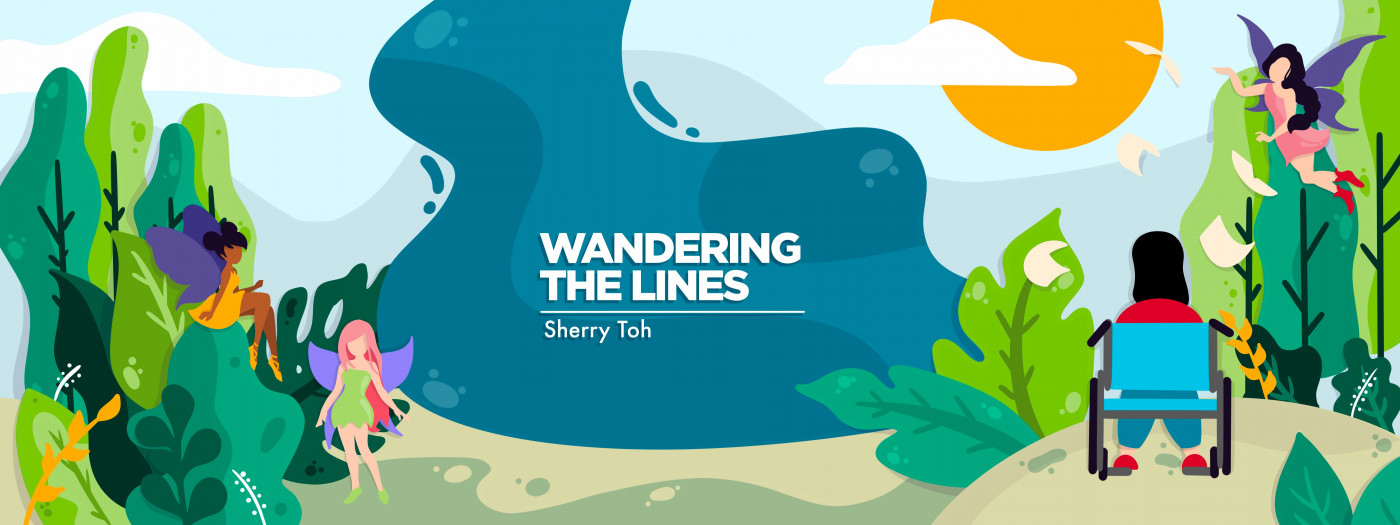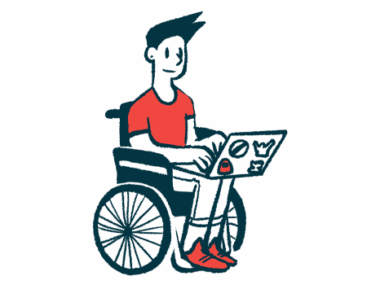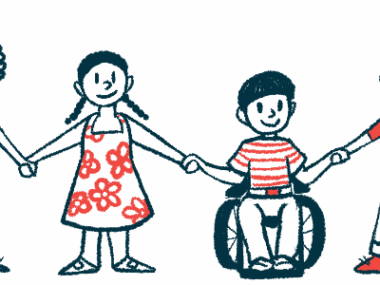How SMA helped me love myself before I loved someone else
Finding self-love was key to loving and accepting love from others
Written by |

Once upon a time, I was a child who grew up with fairy tales, love songs on the radio and CDs for my Walkman, young adult romance novels, and romance dramas on TV and in films. Romance was — and is — as ubiquitous as Valentine’s Day discounts for chocolate and other heart-shaped gifts. I bought into the idea but was inevitably disappointed by the ableism in society that renders girls with SMA undesirable.
After a long and winding journey, I eventually found love in a long-distance relationship with a Texan girl who helped heal some of my worst wounds.
I shared the story last year about how my girlfriend, Hannah, made it clear to me that I am indeed deserving of love on Valentine’s Day. If you’d like to read about how she taught me to reframe scenarios to point out how ludicrous ableist messaging is, head over to that column. This year, I wanted to tell the story of the in-between period before I met her, and how SMA was a blessing as much as it was a curse in my romantic life.
I didn’t know what I wanted, but God, I wanted it
The best way for me to set the scene of that period in my life is with the song “20 Something” by the U.S. singer-songwriter Fletcher. Lyrically and sonically, “20 Something” depicts a sense of being lost and lonely that can haunt you throughout your youth.
Fletcher uses the pronoun “I” to describe her experiences in the verses, then switches to “we” in the chorus and the bridge. Like the voices that join her in the song’s last chorus, Fletcher’s songwriting emphasizes her isolation, although it seems like there’s a connection between her, the background vocalists, and the listener. But one of my takeaways from this is that having aimlessness and loneliness in common isn’t really something people can bond over. The lost can’t guide the lost.
That said, I related to this lyric in particular: “We’re all just 20-something, 20-something/ We don’t know what we want, but God, we want it.”
People sometimes mistake loneliness as a lack of people around you. But as “20 Something” illustrates, you can be surrounded by people and still be lonely. You do your best to smile at and communicate with others, but you feel like you can’t let anyone in, or that no one is knocking on your door in the first place.
That’s how I felt during my teenage years and the first couple years of my 20s. SMA made it hard for me to be vulnerable with others. I had friends, and I was open about my disability, but they had their busy lives, whereas I had no formal education or job.
I didn’t want to bother them — they weren’t therapists. But that meant I rarely dug into my fears and desires. I couldn’t process things without someone to do it with. As a result, my ideas about romance and what I wanted in a partner and in life remained underdeveloped until I reached 19, when I had a friendship that allowed me to vent and process things.
Before then, I knew that I found British accents attractive. I believed I wouldn’t mind dating someone older. I had celebrity crushes on Chris Evans and Taylor Swift. I envied television and film characters that experienced dramatic romantic sequences. I liked art in any medium and artistic people. But that’s all.
The turning point
Then, at 19, when I’d found a friend I could be vulnerable with, she encouraged me to be open to the possibility of love despite society’s ableism. I eventually joined a singles group on Facebook, thanks to her encouragement, and met people who further encouraged me to reflect on what I wanted and to confidently state who I was. One of those people was my now best friend and fellow SMA News Today columnist Brianna Albers, whose presence changed the course of my life.
In time, I examined and deconstructed my internalized ableism. I learned that having someone older as a partner would be an intimidating power imbalance for me. I became more cautious about the consequences that come with flings and whirlwind romances.
I figured out that what I really, truly wanted was a partner I could be intimately honest with. Then I found Hannah. (Well, actually, Hannah found me.)
And along the way, I stumbled onto a career path in video games journalism.
None of this could have happened without having SMA in my life. Who knows what would’ve happened to me if I were nondisabled? Maybe I would’ve been fine. Maybe I would’ve stumbled into too many wrong places and wrong arms. I don’t know. But what I do know is this: My disease led me to the right places, friendships, and partner. It gave me time to reflect and grow. All I needed to do was take that opportunity.
Note: SMA News Today is strictly a news and information website about the disease. It does not provide medical advice, diagnosis, or treatment. This content is not intended to be a substitute for professional medical advice, diagnosis, or treatment. Always seek the advice of your physician or other qualified health provider with any questions you may have regarding a medical condition. Never disregard professional medical advice or delay in seeking it because of something you have read on this website. The opinions expressed in this column are not those of SMA News Today or its parent company, Bionews, and are intended to spark discussion about issues pertaining to spinal muscular atrophy.








Leave a comment
Fill in the required fields to post. Your email address will not be published.